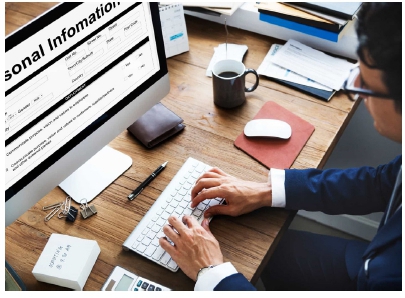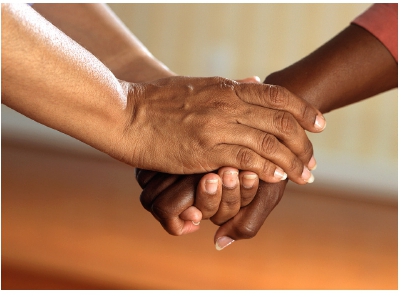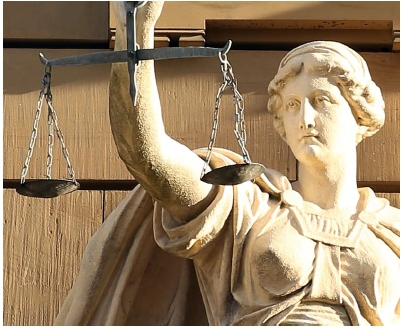Services on Demand
Article
Indicators
Related links
-
 Cited by Google
Cited by Google -
 Similars in Google
Similars in Google
Share
South African Dental Journal
On-line version ISSN 0375-1562
Print version ISSN 0011-8516
S. Afr. dent. j. vol.75 n.7 Johannesburg Aug. 2020
http://dx.doi.org/10.17159/2519-0105/2020/v75no7a10
ETHICS
COVID-19 in dentistry- Ethical considerations
R MaartI; R MulderII; S KhanIII
IBChD, MSc, Senior Lecturer, Department of Restorative Dentistry, University of the Western Cape, Cape Town, South Africa
IIBChD, MSc, PhD, Senior Lecturer, Department of Restorative Dentistry, University of the Western Cape, Cape Town, South Africa. ORCID Number: 0000-0002-8722-7632
IIIBChD, MSc, PhD, Associate Professor, Department of Restorative Dentistry, University of the Western Cape, Cape Town, South Africa.ORCID Number: 0000-0001-6017-959X
INTRODUCTION
The reach of Coronavirus Disease - 2019 (COVID-19) has even reached the ethical guidelines for good practice from the Health Professions Council of South Africa (HPCSA).1
The health care worker should carefully consider the guidance outlined in several of the booklets as patient treatment has multiple dimensions where COVID-19 had impacted on clinical practice. Due to the nature of dentistry and aerosol generation, special care must be taken when treating healthy patients and patients that are carriers but do not realise that they are COVID-19 positive.
COVID-19 transmission and aerosol dissemination may expose the practice team to hazards of infection. The risk is elevated when implementing aerosol generating procedures without any protective equipment. The oral health care worker (OHCW) and staff thus require the appropriate personal protective equipment (PPE) as suggested by country-specific guidelines, for example, The South African Dental Association (SADA).2
To this extent, practicing dentistry in the 21st century is complex3 and amidst the current COVID-19 pandemic the OHCW is presented with more pitfalls. As the pandemic is showing no sign of abating in SA, this has presented the OHCW with a range of additional ethical considerations.
These dilemmas may be resolved in a variety of ways following an understanding of the basic knowledge of core ethical values and standards for good practice outlined by the HPCSA guidelines.1

In an attempt to provide guidance to the ethical dilemmas that OHCW might face during this COVID-19 pandemic, ethical reasoning of "what would a reasonable OHCW do" is required. Some of these core ethical values and standards: respect for patient autonomy, non-maleficence, beneficence and veracity will be highlighted to provide the OHCW with the relevant knowledge to navigate the dilemmas with sound ethical considerations.
Although the exact means the OHCW should consider to navigate various scenarios might change in the coming months with continuous updates from HPCSA, SADA and Dental Protection Limited (DPL), for example, "do no harm" and the "best welfare" to the patient will remain at the centre of such ethical considerations.
PATIENT AUTONOMY
The OHCW should honour the rights of patients to self-determination and confidentiality.1 During the early stages of the pandemic, SA was quick to respond with a hard lockdown. Level five being the 1st of a series of levels described for lockdown, in an attempt to decrease the rate of spread of COVID-19 and flatten the curve.
This restriction on the country resulted in a dental scope of practice defined and limited to emergency treatment only, where no elective dental procedures were advised to be offered to patients. In order to allow emergency treatment to commence the use of aerosol generation, for example an access cavity, was permitted.
On the basis of the experiences of OHCW in China (Wuhan City), they had to adhere to strict personal protection using appropriate PPE that included the appropriate respiratory PPE.4 Patients presenting for any dental procedures now as the levels of lockdown change, a pre-treatment screening for any symptoms of COVID-19 symptoms and infection is performed.2
The pre-screening session entail OHCW obtaining valid informed consent from each patient after providing them with accurate and clear information about the risks of COVID-19 infection to the them, their family and com-munity.5 Furthermore, to ensure that the informed consent is valid, the OHCW must also state that the practice is doing everything they can in accordance with guidelines from the National Government as well as SADA to ensure engineering controls are in place and treatment will remain to the ethical guidelines.
SADA has issued a treatment guide prescribed per level of lockdown that offer the OHCW with 80% guidance and the OHCW will use their clinical judgement for the remaining 20% based on their clinical, ethical and situa-tional context.2
The safeguard of confidentiality is more complex and needs to be explained to the patient in terms of the COVID-19 dilemma of contact tracing when such a scenario should arise. Under the HPCSA code of ethics, OHCW are obliged to safeguard the confidentiality of patient records.1 However, this obligation become problematic and even compromised if the need for contact tracing become necessary when the patient or staff member become a Person Under Investigation (PUI).
From the experience drawn from OHCW during the pandemic in Wuhan, every dental procedure was recorded, the contact details (phone number and home address) of patients and accompanying persons. This allowed contact tracing to commence in the event that the OHCW, staff, patients or accompanying person became COVID-19 positive in the subsequent incubation period.6

This precautionary measure amidst this pandemic would deem the OHCW to contradict or even compromise the ethical principle of confidentiality. Therefore, the treatment performed on the patient should not be disseminated to respect the patients' privacy and confidentiality, but the contact details to allow contact tracing would be provided to the relevant authorities.
There is therefore an inherent conflict between a patients' interest in confidentiality and that of the public for the protection of individuals from transmission of infectious diseases.7 The contact tracing is essential to reduce the spread of COVID-19 and to ensure that potentially infected people receive timeous investigations and/or treatment.
Therefore, the OHCW should inform patients of this potential need to share identifiable information in the consent process, should the PUI situation present itself.5
NON-MALEFICENCE
Under this ethical principle, the OHCW have an obligation to not harm or act against the best interests of patients.1 This includes all your patients, staff and their families that are in close proximity to any individual, even those who have been positively diagnosed with or those who are asymptomatic carriers of COVID-19.
The risk of being in close proximity to a COVID-19 patient, presents a scenario to the OHCW that the practice or clinic can become a nexus for further spread of the virus. The American Dental Association (ADA) therefore recommended the cessation of all elective treatment dental procedures.
In light of the potential risk of COVID-19 transmission from either asymptomatic or symptomatic patients, the following standard protocol needs to be considered in your practice or clinic:
• Determining the body temperature of patients on entering.
• Screening patients for emergency dental procedures only.
• Checking whether these patients were presenting any COVID-19 infection related symptoms;
• Establishing whether patients had any exposure to or contact with a PUI and whether patients have travelled from any COVID-19 hotspots (especially during the initial level Ave lockdown in SA).
In the case of an OHCW that is ill or suspected to be a PUI for COVID-19 infections, the OHCW has an obligation to firstly inform the practice or clinic and its management.
The ADA advised to limit practice to ensure that they do not endanger any patients and other staff.5 Based on contact tracing the OHCW might become a PUI and need to go into self-isolation until the window-period or the requirements for testing are met. This will allow the management or clinic to engage in appropriate cleansing procedures for the practice to prevent any further contact with infected areas and ensuring the safety of other patients. The limitation of on-site work activities will also ensure that the practice or clinic do not become a COVID-19 nexus for patients and staff who may add to the local transmission of the virus.2,5
When a positive OHCW recover and receive the appropriate number of negative COVID-19 tests, the OHCW may resume their normal duties. The OHCW also have an ethical obligation to immediately inform any patients who may have been potentially exposed within the incubation period of COVID-19, emphasising this principle of "do no harm".
These individuals should be considered as PUI and present for post exposure evaluation and discussion with their human resources department, management and health care providers. In the event that the practice require a complete or partial closure, patients should be accommodated by directing them to another practitioner or provided with a written referral for a colleagues to assist in their continuous treatment, especially in the event of emergency procedures that cannot be provided.
Universal precautions of disinfection, such as the SADA guideline should be followed at all times, and this must be adhered to within clinics or practices where both the dentist and staff strictly observe these protocols to reduce the impact of the practice becoming a COVID-19 nexus. This has become especially pertinent for adhering to the ethical principle of non-maleficence in situations where the PPE as suggested by SADA is not available.2
In the SA context, appropriate and sufficient supply of PPE or the absence thereof are realities all health care workers face at some time or another. SA rely heavily on the majority of PPE being imported. Whether to treat a patient or not without the suggested PPE is a major ethical dilemma because all health care professionals have taken the Hippocratic Oath which affirms the obligation to treat patients if and when they need to be treated.
This ethical predicament may be mitigated by following the best available evidence and validated guidelines as suggested from country specific dental organisations, such as SADA and HPCSA, that will allow a safe practice and clinical environment to all that present to these premises.
The HPCSA also recommended that if PPE is not immediately available, then the practitioner should visit the latest information from the National Institute of Communicable Disease8 but it should not be limited to and should still consider the following items: can treatment be delayed; can additional steps be taken to minimise risk of transmission; and if no other solution can be sought, identify the likely action that will result in the least harm under the circumstances.9
What this indicates is that, under such extreme circumstances such as pandemic, normal ethical principles may have to be modified or adapted to allow the OHCW reasonable and best practice liberties to allow treatment without consequences or litigation.
Fortunately, in general dentistry the latter situation will be unlikely to present itself. Nevertheless, the OHCW should at all times ensure a safe working environment as far as reasonably possible. This includes that the employer should provide the necessary resources to keep all staff safe in their working environments.10,11
Research on various aspects of COVID-19 is ongoing (though very little clinical evidence is available due to the nature of the condition and health facilities being overwhelmed) and regularly the suggested protocols are updated and refined as knowledge of this pandemic increase and countries are relaxing their economies to return to their altered way of life with COVID-19.
Current ethical guidelines will be redefined, perfected and clarified as the various operational scenarios within countries present themselves. SADA and other dental organisations have a well-established line of communication with members and the relevant information is communicated at regular intervals, which occurs frequently after receiving related information from the country's health authorities and the COVID-19 response team.
BENEFICENCE
Encompasses not to inflict evil or harm, to prevent evil or harm, to remove evil or harm and to promote good or do what they can that would benefit the patient (no harm), while serving the patient and public-at-large. Since the start of the COVID-19 pandemic and when SA entered level 5 lockdown, the OHCW remained available to manage dental emergencies and other procedures based on the suggested guidelines received from SADA.

For the duration of the pandemic, the OHCW remain available and will continue to modify protocols during the different levels the President decides upon using these guidelines. On the basis of relevant guidelines and evidence, dentists should take strict personal protection measures and avoid or minimise procedures where droplet or aerosol production occurs, to protect themselves and the patients they serve.2,5
With regards to scarce resources such as PPE, this should be used as per the SADA guidelines where it is required to ensure OHCW and the staff protection.
In the spirit of collaboration and professional courtesy, extra PPE could be shared with colleagues that are experiencing shortages, to promote the well-being of the whole health care community. This kind of actions displayed is indicative of upholding the principle of beneficence.
VERACITY/JUSTICE
Justice as an ethical principle refers to the fairness in health-related decisions that burden or benefit patients, distribution of scarce resources and new treatments.
With the literature on the COVID-19 pandemic, continually becoming clearer, truthful communications with patients remain the best approach.
During such a fluid period, such as a pandemic, misinformation and non-validated news sources will be abundant, it is therefore expected that dental professionals and all OHCW interrogate the evidence and ources of information and only engage with material from reputable journals and organisations.

In the event that a patient require information that you are unable to assist with, be truthful and ensure them that when it becomes available you will communicate it to them. Additionally, as part of the infection control strategies, the practitioner must be weary of advertising and perverse incentives which could harm their patients or not be of any benefit to them.
To this end, with substantial expenses to themselves and their practices, some practitioners are investing in biodecontamination equipment. But the correct use and promotion thereof should be done following proper guidelines, for example, such as those set out by the HPCSA.12
CONCLUSION
In addition to understanding the ethical principles discussed above, the moral theory and virtue of ethics support the view that in order to do good, one has to be good3 and this should be considered as a mantra for this difficult time of running a practice during this COVID-19 pandemic and the uncertainties it presents.
According to this moral theory the good OHCW should possess characteristics or virtues such as compassion, integrity, discernment and trustworthiness.3 This will allow the OHCW to navigate ethical issues underpinned by evidence and by interrogating any related literature as regards to their "moral fibre".
The whole dental practice should be considered to be on the front line with staff support, compassion and empathy as their guiding light. In addition, dental staff should be cognisant of the fact that ethical practices may need to be modified or refined during such unconventional times as a pandemic, with no consequence to them. They therefore need to distinguish between clinical ethics and public health ethics and their role and duties within this environment.
References
1. HPCSA. Ethical guidelines for good practice in the health care professions - Protecting the Public and Guiding the Professions in the health care professions [Internet]. HPCSA; 1-335. Available from: https://www.hpcsa.co.za/Uploads/Pro-fessional_Practice/Ethics_Booklet.pdf [ Links ]
2. The South African Dental Association. SADA dental clinical protocol in response to COVID-19 Pandemic SADA dental clinical protocol in response to the COVID-19 Pandemic 2020: A South African Private Practice Perspective Dentistry Is Potentially Dangerous for Ourselves, Our Patients and Our S [Internet]. 2020. Available from: https://cdn.sada.co.za/files/clinical-resources/downloads/coronavirus/SADA Dental ClinicalProtocolsinResponsetotheCOVID-19Pandemic 2020 A South African Perspective Final Draft 10-5-2020.pdf?v=20200529142823. [ Links ]
3. Naidoo S, Moodley K. Ethics and the Dental Team. Van Schaik Publishers; 2010. 1-144. [ Links ]
4. Mulder R, Layloo N, Mulder van Staden S. COVID-19: Focus on masks and respirators - Implications for oral health-care workers. SADJ. 2020; 75(4): 175-82. [ Links ]
5. ADA. Guidance on Continuing to Practice Ethically during COVID-19 Guidance on Continuing to Practice Ethically during COVID-19 [Internet]. 2020. Available from: https://success.ada.org/~/media/CPS/Files/COVID/ADA_COVID_How_Do_I_ Ethically_See_Patients_During_Pandemic.pdf. [ Links ]
6. Meng L, Hua F, Bian Z. Coronavirus Disease 2019 (COVID-19): Emerging and Future Challenges for Dental and Oral Medicine. JDR. 2020; 99(5): 481-7. [ Links ]
7. Naidoo S, Vernillo A. Ethical and Legal Issues on HIV Testing, Policy and the Practice of Dentistry. J Forensic Odontostomatol. 2012; 30(2): 7-16. [ Links ]
8. National Institute of Communicable Disease. National Institute of Communicable Disease: COVID-19 [Internet]. National Institute of Communicable Disease. 2020. Available from: https://www.nicd.ac.za/. [ Links ]
9. HPCSA. COVID-19 Outbreak in South Africa: Guidance to Health Practitioners [Internet]. 2020. Available from: https://www.hpcsa.co.za/Uploads/Events/Announcements/HPCSA_COVID-19_guidelines_FINAL.pdf [ Links ]
10. Republic of South Africa Parliament. No. 61 of 2003: The National Health Act, No. 61 of 2003. Vol. 469, 23 July 2004 No. 26595. [Internet]. Available from: http://www.gov.za/sites/ww.gov.za/files/a61-03.pdf. [ Links ]
11. Republic of South Africa. No 85 of 1993: Occupational health and Safety Act as amended by Occupational Health and Safety Amendment Act, No. 181 of 1993. [ Links ]
12. Health Professions Council of South Africa. Guidelines on Overservicing, Perverse Incentives and Related Matters. Booklet 5, Professional Conduct & Ethics [Internet] Hpcsa. co.za 2020. Available from: http://www.hpcsa.co.za/conduct/Ethi. [ Links ]
 Correspondence:
Correspondence:
Riaan Mulder
Department of Restorative Dentistry
University of the Western Cape, Cape Town, South Africa
Email: rmulder@uwc.ac.za
Author contributions:
1 . Ronel Maart: First author - 60%
2 . Riaan Mulder: Second author - 25%
3 . Saadika Khan: Third author - 15%














